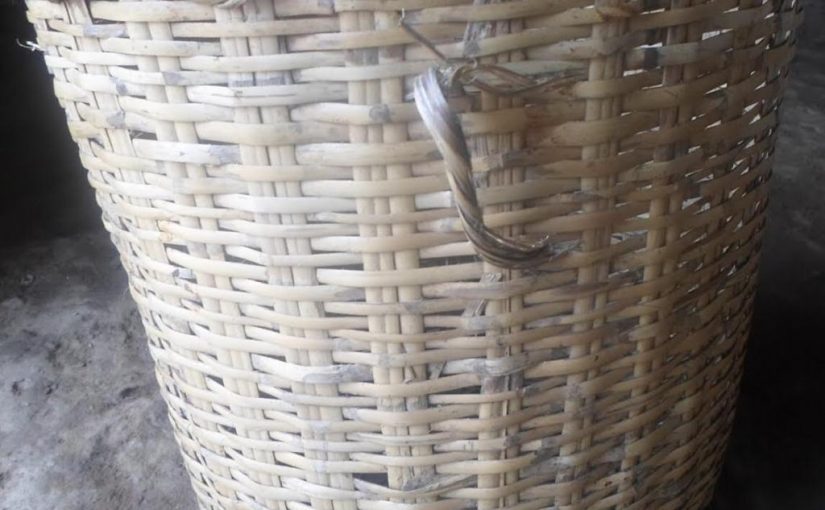In this lesson we will learn the past tense of intransitive and transitive verbs. In Nahuatl, verbs form four classes in terms of morphology. We have already made references to class three verbs, which end in /ia/ and /oa/. Transitive and intransitive verbs can exists within any of the four classes.
Account of the feast of Ēlōtlamaliztli CC BY Chicometepetl
Clase 3
Class 3 verbs end in “-ia” and “-oa” in the present. In the past tense, they delete the last vowel and “-h” or “-hqui” are added for the singular and “-hqueh” for the plural. For example:
ni – (verbal base) – h/hqui
ti – (verbal base) – h/hqui
ø – (verbal base) – h/hqui
ti – (verbal base) – hqueh
in – (verbal base) – hqueh
ø – (verbal base) – hqueh
Tlamanēxtilli tlen ahāhuiltiliztli tlen tlachīhualiztli (Example of the conjugation of verbs)
Tiquillih / Tiquillihqui “You said” (something)
Quillih / Quillihqui “She/he said” (something)
Tiquillihqueh “We said” (something)
Inquillihqueh “You (plural) said” (something)
Quillihqueh “They said” (something)
Ticmaquilih / Ticmāquilihqui “You hit it/him/her”
Quimaquilih / Quimāquilihqui “She/he hit it/him/her”
Ticmāquilihqueh “We hit it/him/her”
Inquimāquilihqueh “You (plural) hit it/him/her”
Quimāquilihqueh “They hit it/him/her”
Ticmachtih / Ticmachtihqui “You taught it”
Quimachtih / Quimachtihqui “She/he taught it”
Tiquimachtihqueh “We taught it”
Inquimachtihqueh “You (plural) taught it”
Quimachtihqueh “They taught it”
Ticholoh / Ticholohqui “You escaped”
Choloh / Cholohqui “She/he escaped”
Ticholohqueh “We escaped”
Incholohqueh “You (plural) escaped”
Cholohqueh “They escaped”
Tiquihtoh / Tiquihtohqui “You said it”
Quihtoh / Quihtohqui “She/he said it”
Tiquihtohqueh “We said it”
Inquitohqueh “You all said it”
Quihtohqueh “They said it”
Clase 4
Class 4 verbs take “-hqui” in the singular and “-hqueh” in the plural. Just like class 1, this conjugation does not deletethe final vowel of the verbal base. For example:
ni – (verbal base) – hqui
ti – (verbal base) – hqui
ø – (verbal base) – hqui
ti – (verbal base) – hqueh
in – (verbal base) – hqueh
ø – (verbal base) – hqueh
Tlamanēxtilli tlen ahāhuiltiliztli tlen tlachīhualiztli (Example of the conjugation of verbs)
Titlacuāhqui “You ate”
Tlacuāhqui “She/he ate”
Titlacuāhqueh “We ate”
Intlacuāhqueh “You (plural) ate”
Tlacuāhqueh “They ate”
Ticmāmāhqui “You carried it on your back”
Quimāmāhqui “She/he carried it on her/his back”
Ticmāmāhqueh “We carried it on our back”
Inquimāmāhqueh “You (plural) carried it on your backs”
Quimāmāhqueh “They carried it on their backs”
tlapāna “to break”
calaqui “to enter”
mēhua “to awake”
ātiya “to melt”
chiya “to wait”
quiquici “to whistle”
cuamachilia “to understand” (something)
mihtōtia “to dance”
tlaxcaloa “to make tortillas”
paxaloa “to visit”
Conjugate the following verbs in the past tense in all persons and in singular and plural.
Class 3
Calaqui
Mēhua
Ātiya
Chiya
Quiquici
Class 4
Cuamachilia
Mihtōtia
Tlaxcaloa
Paxaloa

